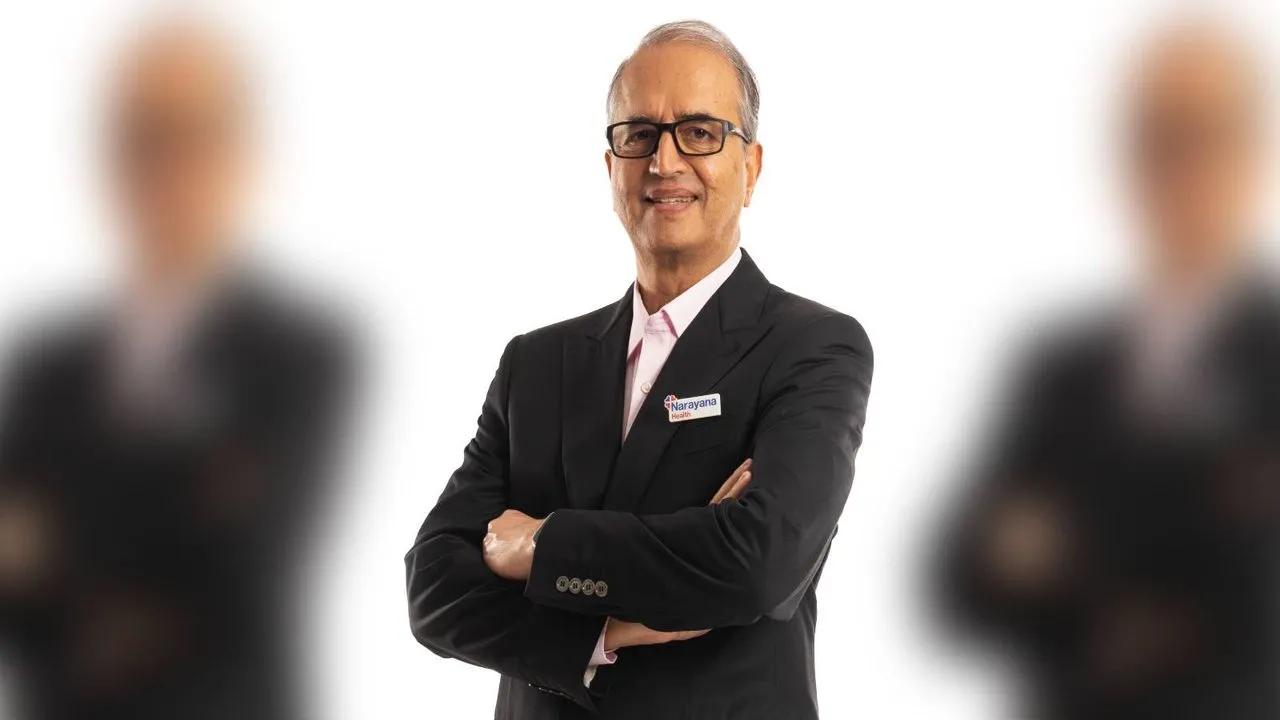On World Heart Day, Dr. Devi Shetty, founder and chairman of Narayana Health, discusses with South First the critical aspects of heart health, including differentiating chest pain from acidity, the importance of regular check-ups, the role of technology in heart care, and actionable steps for maintaining a healthy heart.
Rising Awareness of Heart Health Post-COVID
Q. Has the pandemic increased awareness about heart health?
Dr. Shetty: Yes, the pandemic has significantly heightened awareness about overall health, including heart health. Sudden cardiac arrests and deaths frequently made headlines, amplified by social media. While it might seem that heart attacks have increased, I believe this perception is largely due to better reporting and visibility rather than an actual rise in cases.
Q. What trends are you observing in your practice?
Dr. Shetty: There’s no marked increase in heart disease, but heightened awareness has led people to consult doctors for even minor discomforts. This has resulted in more diagnoses. However, many remain undiagnosed, especially younger individuals who appear fit but may have advanced heart disease. Regular cardiac evaluations can prevent tragic incidents, such as sudden collapses during physical activities.
Recognizing Heart Disease
Q. How can people differentiate between cardiac pain and acidity?
Dr. Shetty: Laypeople shouldn’t attempt to differentiate. If you experience unfamiliar pain, visit the nearest cardiac hospital immediately. Delays, especially during nighttime, often result in missing the critical golden hours (4–6 hours post-heart attack) when heart muscle damage can be reversed. Once the heart is damaged, recovery is impossible, regardless of the treatment.
Q. What about mini heart attacks?
Dr. Shetty: While the term “mini heart attack” isn’t medically accurate, anginal pain indicates blockages and serves as a warning sign. It’s a signal to seek medical attention before it leads to a full-blown heart attack.
Q. Can heart attacks occur during sleep?
Dr. Shetty: Yes, but it’s rare in individuals with a healthy heart. Most cases involve pre-existing conditions detectable through regular check-ups.
The Role of Lifestyle in Heart Health
Q. How important is diet for heart health?
Dr. Shetty: Dietary guidelines have evolved. Today, carbohydrates—like rice, chapati, and sugar—are the primary culprits, alongside excessive oil consumption. Moderating carbohydrate intake and avoiding red meat are essential for heart health.
Q. What are your top five recommendations for a healthy heart?
- Regular health check-ups, including blood tests and imaging.
- Exercise regularly—brisk walking and yoga are excellent options.
- Follow a balanced diet, reducing carbohydrates and oil.
- Maintain a healthy sleep schedule.
- Cultivate spirituality to manage stress effectively.
Technology and Heart Health
Q. Can smartwatches help detect heart issues?
Dr. Shetty: Absolutely. Smartwatches are revolutionary tools for tracking steps, monitoring heart rhythms, and potentially detecting electrical abnormalities. Walking 10,000 steps daily significantly improves cardiac and overall health. Future wearable technologies may even monitor blood sugar levels and other critical parameters.
Making Preventive Care Accessible
Q. What steps are being taken to promote preventive health checks?
Dr. Shetty: We’re piloting a project in Bengaluru to bring preventive health checks closer to people’s homes or workplaces, encouraging participation by reducing the need to visit hospitals.
Affordable Healthcare Models
Q. How does Narayana Hrudayalaya’s Aditi Health Insurance address healthcare accessibility?
Dr. Shetty: Universal free healthcare is ideal but unrealistic given India’s limited healthcare budget. Instead, we focus on providing affordable health insurance, covering both surgical and non-surgical treatments. For surgical procedures, a ₹10,000 premium offers coverage up to ₹1 crore.
Our goal is equitable treatment for all, ensuring financial constraints don’t dictate healthcare decisions. While this is a pilot project, we aim to expand it nationwide, including rural areas.
Q. What about criticisms that the scheme mainly benefits urban areas?
Dr. Shetty: Urban areas are just the starting point. Once we refine the model, we’ll roll it out nationwide, ensuring accessibility for rural families.
Dr. Shetty’s insights reinforce the importance of early detection, lifestyle changes, and technology in combating heart disease. With preventive care and innovative models like Narayana Health’s insurance schemes, there’s hope for making healthcare accessible and equitable for all.

